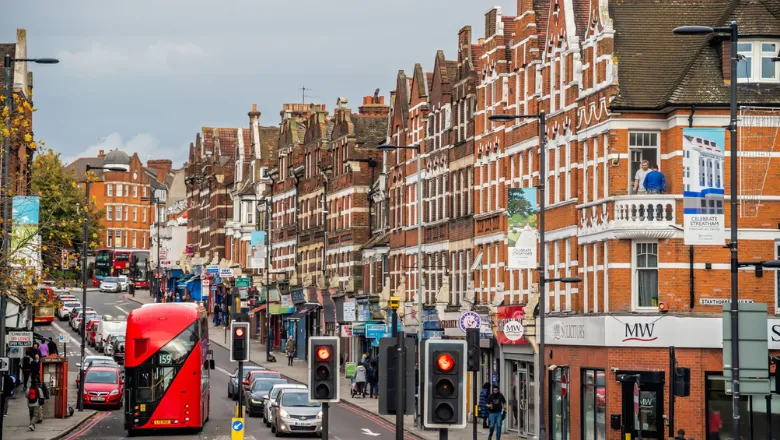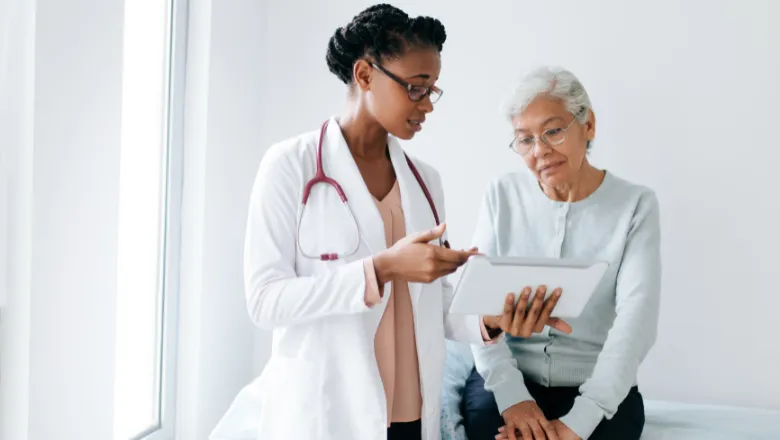
Professor Seeromanie Harding
Professor of Social Epidemiology
- Joint Head of Department, Population Health Sciences
- School Academic Lead (International)
- KGHP Board Member
Biography
Seeromanie Harding is Professor of Social Epidemiology at King’s College London. Her expertise spans social and ethnic inequalities in health over the life course, international comparative studies, and community-based interventions in low resource settings. She has a keen interest in using community-based participatory methods and systems perspectives to engage with the complex socio-cultural-political contexts that drive health disparities. In collaboration with local colleagues, she currently leads the CONTACT (Congregations Taking Action Against Non-communicable Diseases) study which seeks to integrate places of worship into the primary care pathway in Guyana, Jamaica and Dominica; the HEKIMA study in Kenya which seeks to strengthen the primary care system using health kiosks in community markets for prevention and control of cardiovascular diseases; and the IMPACT study in Brazil which focuses on co-designing interventions to address the physical and mental health of indigenous adolescents in Brazil. Interdisciplinary perspectives, community engagement and collaborative partnerships with policy actors and practitioners are key anchors for these studies to engage communities in health promotion, research, and policy making. Many of these principles also underpin a UK-based collaborative study with Dr Louise Goff ‘Healthy Eating and Active Lifestyles for Diabetes (HEAL-D) in African and Caribbean communities’.
Before joining King’s College, she led the Medical Research Council funded Ethnicity and Health Research Programme at the University of Glasgow. Whilst there she established the DASH (Determinants of Adolescent, now young Adults, Social well-being and Health) study, a London based longitudinal study of ~6000 ethnically diverse young people. DASH built on her earlier research on social inequalities in health at the Office of National Statistics and London School of Hygiene and Tropical Medicine using national and international longitudinal studies of health and well-being. She was contributing author to the UK Health Inequalities Decennial Supplement which underpinned many strategic reviews in inequalities that followed. The Resilience, Ethnicity, and AdolesCent Mental Health (REACH) and eBrain studies are current collaborative studies that build on the findings of DASH with an in-depth focus on the social an biological determinants of mental health of adolescents. The early-LIfe data cross-LInkage in Research (eLIXIR) study is another live collaborative study that continues her interests how social determinants in early life and postnatally affects disparities in later life. She has an interdisciplinary background, with a PhD in Epidemiology, MSc in Medical Demography and BSc in Social Sciences.
Projects:
-
Co-developing a multi-sectoral-primary care partnership to address inequalities in cardiovascular disease prevention and management in the Maasai in Kenya
30/06/2024 → 29/12/2025
Project: Research
-
IMPACT: Implementation of a multisectoral programme to improve Indigenous adolescent mental health in Brazil and Dominica
Harding, S., Dazzan, P., Murdoch, J. & Parmar, D.
1/07/2023 → 30/06/2026
Project: Research
-
Is exposure to toxic metals contributing to ethnic and social health inequalities in children and young adults in the UK?
1/04/2023 → 31/03/2026
Project: Research
-
CELEBRATE: Co-producing a framework of guiding principles for engaging representative and diverse cohorts of young people in biological research in mental health
Dazzan, P., Harding, S., Mondelli, V., Morgan, C., Nosarti, C. & Pariante, C.
1/11/2022 → 30/04/2025
Project: Research
-
Hairdressing salons to promote web-based intervention to reduce under-diagnosis of cardiovascular risk factors among women in London’s deprived and ethnically diverse neighbourhoods: a feasibility study
Molokhia, M., Ayis, S., Coultas, C., Curcin, V., Goff, L., Harding, S. & L’Esperance, V.
NIHR National Institute For Health & Care Research
1/03/2022 → 31/12/2024
Project: Research
Research

e-BRAIN
e-BRAIN: The impact of early adversity on trajectories of brain maturation and mental health in young adolescents
Project status: Ongoing

Epidemiology research group
The Epidemiology research group focuses on epidemiological methodologies and applications in public health and health services research

Population Health Stakeholder Involvement Group (PHSIG)
PHSIG works collaboratively with multisectoral partners to ensure bring together diverse opinions for shared impact.

Health Inequalities, Societies and Systems
Central to our research is understanding and tackling the systemic and intersecting drivers of disparities in health over the life course such as racism, gender, crime, precarious livelihoods, environmental pollution, and inaccessible health care. We work collaboratively across the School of Life Course and Population Sciences to strengthen the theoretical aspects of population health research.
News
Community leaders and researchers collaborate to tackle health inequalities
Community leaders from across the UK joined arms with public health experts to brainstorm ways to help plug the gap in health inequalities.

Beauty salons to work with King's researchers to promote breast cancer awareness
Local salon owners will work with a team from King's to adapt an app to encourage women to undertake health checks.

Fine particles in the air associated with higher blood pressure in London teens
A study of adolescents aged 11-16 in London has found long-term exposure to PM2.5 is associated with higher blood pressure, with stronger associations seen in...

Long-term exposure to air pollution puts teenagers at risk of heart disease
Long-term exposure to air pollution can increase the risk of high blood pressure in teenagers, a new study has found.

Patient-level factors predominantly influence women's uptake of GP health checks
Non-uptake of health checks amongst women in ethnically diverse South London are more likely to result from patient level rather than GP practice level factors

Lower exposure to PM2.5 can decrease behavioural problems in adolescents
Lower exposure to PM2.5 can decrease conduct problems in adolescents, new research has found.

Events

Professor Seeromanie Harding on social inequalities in health
Seminar with Professor Seeromanie Harding (title to be decided)
Please note: this event has passed.
King's Global Health Institute Journal Club
Inaugural meeting of the KGHI Journal Club
Please note: this event has passed.
Features
Pandemic impacts on mental health of young people: the REACH study
The REACH Study have published a series of reports on the impact of Covid-19 on adolescent mental health.

Research

e-BRAIN
e-BRAIN: The impact of early adversity on trajectories of brain maturation and mental health in young adolescents
Project status: Ongoing

Epidemiology research group
The Epidemiology research group focuses on epidemiological methodologies and applications in public health and health services research

Population Health Stakeholder Involvement Group (PHSIG)
PHSIG works collaboratively with multisectoral partners to ensure bring together diverse opinions for shared impact.

Health Inequalities, Societies and Systems
Central to our research is understanding and tackling the systemic and intersecting drivers of disparities in health over the life course such as racism, gender, crime, precarious livelihoods, environmental pollution, and inaccessible health care. We work collaboratively across the School of Life Course and Population Sciences to strengthen the theoretical aspects of population health research.
News
Community leaders and researchers collaborate to tackle health inequalities
Community leaders from across the UK joined arms with public health experts to brainstorm ways to help plug the gap in health inequalities.

Beauty salons to work with King's researchers to promote breast cancer awareness
Local salon owners will work with a team from King's to adapt an app to encourage women to undertake health checks.

Fine particles in the air associated with higher blood pressure in London teens
A study of adolescents aged 11-16 in London has found long-term exposure to PM2.5 is associated with higher blood pressure, with stronger associations seen in...

Long-term exposure to air pollution puts teenagers at risk of heart disease
Long-term exposure to air pollution can increase the risk of high blood pressure in teenagers, a new study has found.

Patient-level factors predominantly influence women's uptake of GP health checks
Non-uptake of health checks amongst women in ethnically diverse South London are more likely to result from patient level rather than GP practice level factors

Lower exposure to PM2.5 can decrease behavioural problems in adolescents
Lower exposure to PM2.5 can decrease conduct problems in adolescents, new research has found.

Events

Professor Seeromanie Harding on social inequalities in health
Seminar with Professor Seeromanie Harding (title to be decided)
Please note: this event has passed.
King's Global Health Institute Journal Club
Inaugural meeting of the KGHI Journal Club
Please note: this event has passed.
Features
Pandemic impacts on mental health of young people: the REACH study
The REACH Study have published a series of reports on the impact of Covid-19 on adolescent mental health.

